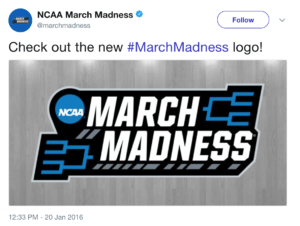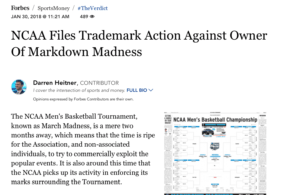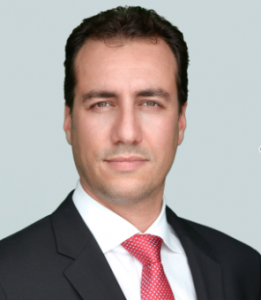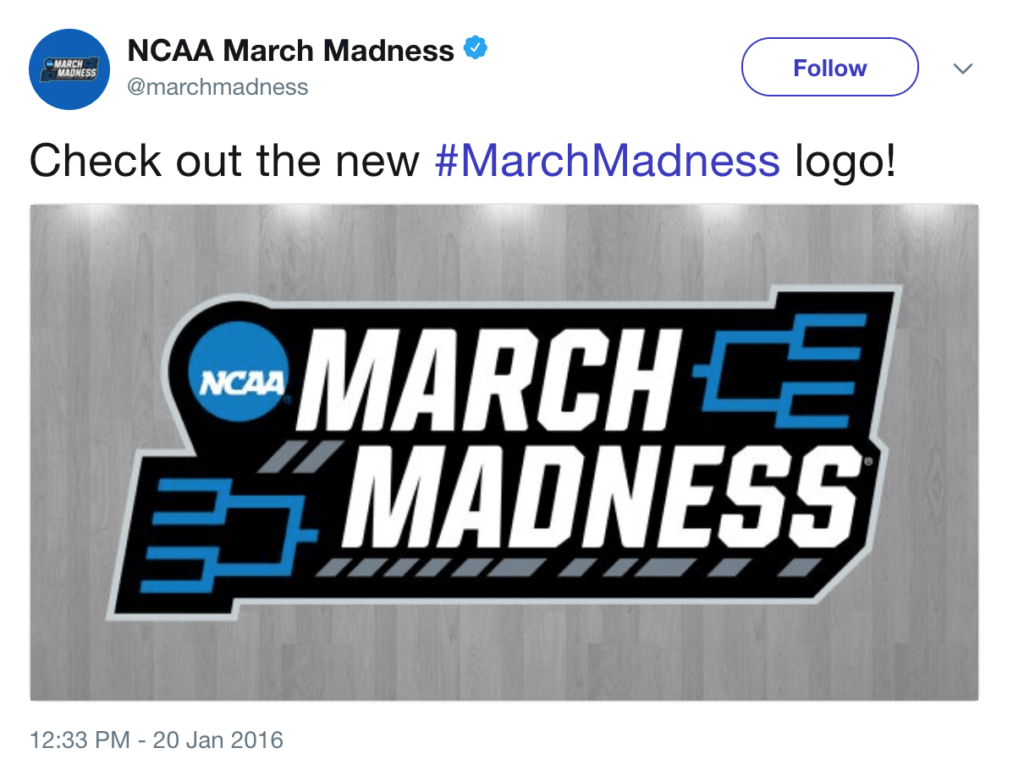
Thus the question becomes whether the use of the registered trademark is fair use, or potentially unauthorized in the absence of an express written consent from the owner, The National Collegiate Athletic Association (NCAA). This carries a substantial legal risk of trademark infringement.
It is well known that the NCAA vigorously polices its MARCH MADNESS ® and FINAL FOUR® trademarks against businesses seeking to profit off unauthorized use of the term on apparel goods, general merchandise, on websites or mobile applications, in advertising for services ranging from dining to tax services, and various other goods. The bottom line is, any promotion on or offline that uses the term MARCH MADNESS ® or FINAL FOUR® or even reference to the game, could face a cease and desist letter or alleged trademark infringement from the NCAA.

The NCAA Men’s Basketball Tournament is a cash cow for the organization. In 2013, 81% of the NCAA’s $870 million in revenues came from media rights, a substantial portion of which is generated during the single elimination tournament happening in March each year. This means using the MARCH MADNESS ® or FINAL FOUR® mark without authorization can potentially devalue one of the NCAA’s most profitable and recognizable intellectual property assets. The NCAA will defend its trademark rights against potential infringement under likelihood of confusion or other laws related to trademark protection in the United States.
The NCAA Trademark Protection Program reads:
“Please refrain from any direct or indirect usage of the NCAA’s championships, tickets or marks/logos unless and until you have obtained the prior written consent of the NCAA and specifically our corporate alliances staff. Federal regulations support the NCAA’s efforts to prohibit the unauthorized use of the NCAA’s name and trademarks (including the Final Four and March Madness) or any use of NCAA championship tickets in sweepstakes, promotions or contests, or any other unfair attempt to associate with or exploit the goodwill of any NCAA championship event. This includes a prohibition against the display of any commercial identification within an NCAA championship bracket. NCAA trademarks may not be used as part of Internet domain names, nor may NCAA trademarks be used on the Internet for commercial purposes.”
Entrepreneurs seeking to engage their customers around the time of the March Madness ® or Final Four® tournaments should exercise caution and common sense. As well as consult an experienced trademark attorney who is also knowledgeable in advertising law to receive an opinion on the scope of risk by way of their planned use of the NCAA’s March Madness ® or Final Four® trademark assets. Failure to do so could mean game over for technology startups and small businesses.

The content above is a discussion of legal issues and general information; it does not constitute legal advice and should not be used as such without seeking professional legal counsel. Reading the content above does not create an attorney-client relationship. All trademarks are the property of L.A. Tech & Media Law Firm or their respective owners. Copyright 2017. All rights reserved.


